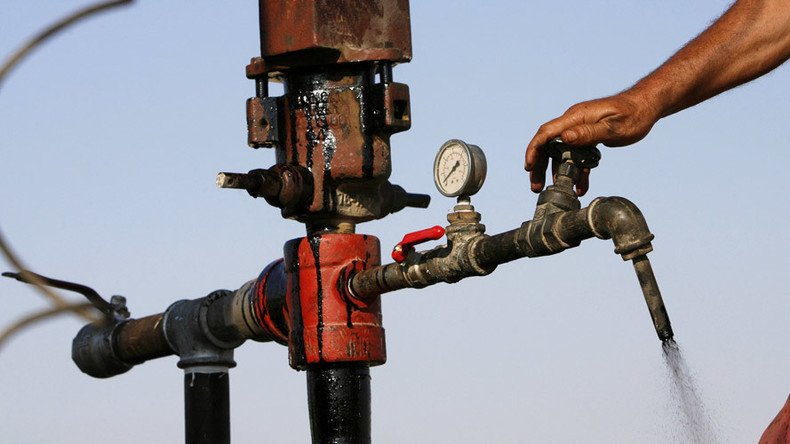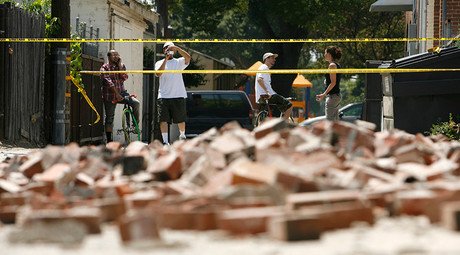Nature groups sue EPA, demand stricter fracking waste rules

Federal regulations on the transport, storage, and disposal of hydraulic fracking waste are outdated and inadequate to stop earthquakes and pollution, a coalition of nature groups argued in a lawsuit filed against the Environmental Protection Agency.
Hydraulic fracturing, or “fracking,” is a technique that involves injecting large quantities of water into the ground to break up rock and shale formations in order to extract oil and natural gas previously considered too difficult to reach.
The practice has become widespread in the US since 2004, but EPA regulations governing the storage, transport, and disposal of water contaminated by the practice have not changed since 1988, environmentalists pointed out in a lawsuit filed with a federal court in Washington, DC on Wednesday.
“Updated rules for oil and gas wastes are almost 30 years overdue,” Adam Kron, senior attorney at the Environmental Integrity Project, said in a statement. “It’s definitely a more waste-intensive industry than ever before.”
With fracking practices having been linked to earthquakes across Arkansas, Colorado, Kansas, New Mexico, Ohio, Oklahoma, and Texas, the groups are seeking to force the EPA to step in and “try to do something about it,” according to Kron.
The lawsuit names as plaintiffs the Environmental Integrity Project, the Natural Resources Defense Council, Earthworks, the West Virginia Surface Owners’ Rights Organization, the Responsible Drilling Alliance, the San Juan Citizens Alliance, and the Center for Health, Environment, and Justice.
Among the plaintiffs’ demands is that the EPA ban the practice of using fracking wastewater as antifreeze on roads and fields, where it can potentially seep into drinking water sources and pollute them.
“Waste from the oil and gas industry is very often toxic and should be treated that way,” said Amy Mall from the Natural Resources Defense Council. The “EPA must step in and protect our communities and drinking water from the carcinogens, radioactive material and other dangerous substances that go hand-in-hand with oil and gas waste.”
#Fracking caused earthquake boom in Ohio town – study http://t.co/tuURPY7fyT
— RT America (@RT_America) January 6, 2015
The groups also want the EPA to adopt strong guidelines on building and maintaining the ponds and landfills used to store fracking waste, and have asked the court to set strict deadlines for the agency to adopt the new rules.













